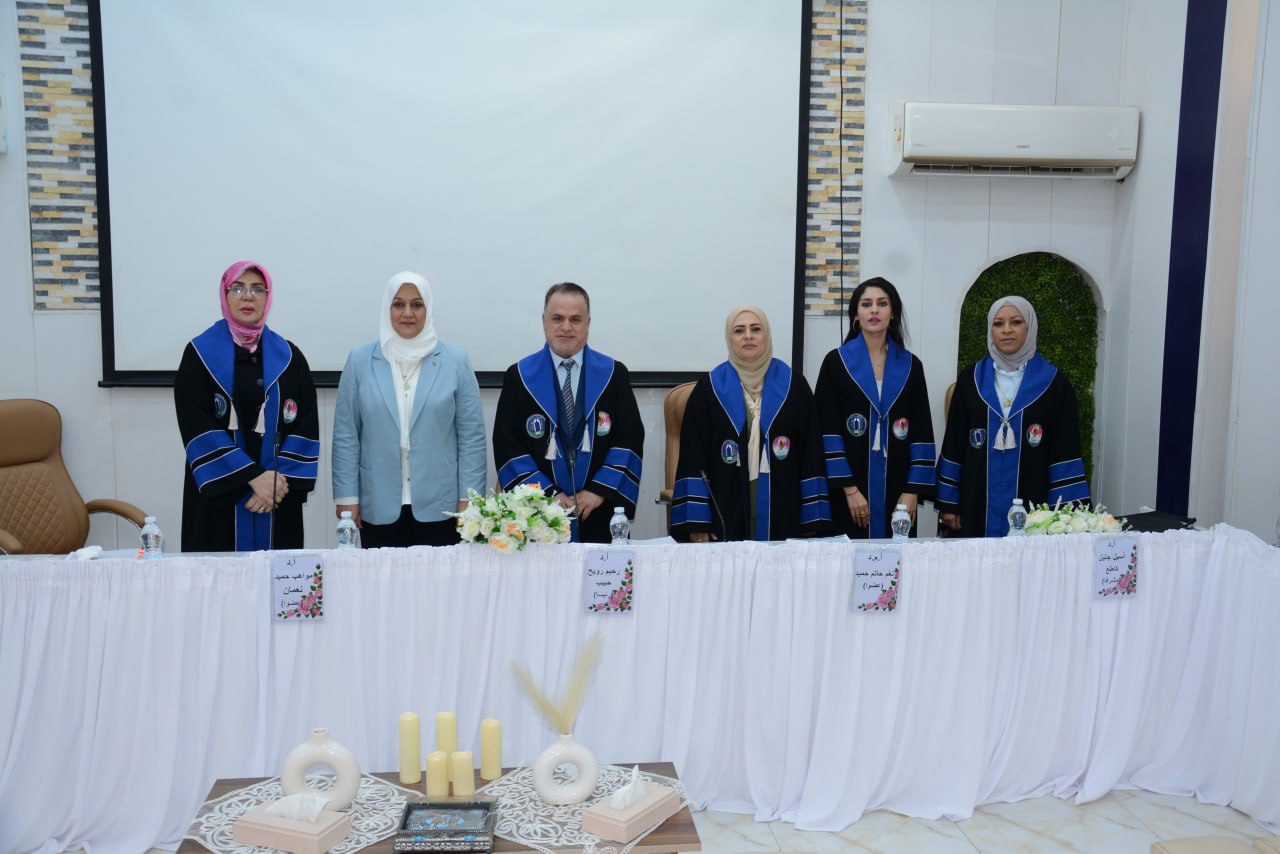A master’s thesis entitled )The Effect of Educational Exercises with Supporting Tools on Balance, Motor Coordination, and Learning the Triple Jump for Female Students( was examined at the College of Physical Education and Sports Sciences for Women – University of Baghdad. The thesis was presented by the researcher (Wurood Shafi Abdullah).
The examination committee consisted of: Prof. Dr. Raheem Ruwaish Habeeb (University of Al-Qadisiyah) – Chair, Prof. Dr. Mawahib Hameed Noaman (University of Baghdad) – Member, Asst. Prof. Dr. Nagham Hatem Hameed – Member, Prof. Dr. Aseel Jaleel Kadhim – Supervisor,
The research aimed to develop tests for balance and motor coordination, design supporting tools to enhance balance and motor coordination, assist in learning the triple jump, and identify the effect of educational exercises with supporting tools on both balance and motor coordination and on learning the triple jump for female students.
The researcher concluded that adopting educational exercises with supporting tools contributes to developing specific motor abilities among learners. It is considered an effective pedagogical method that directly enhances static balance, supports the development of dynamic balance and stability during movement (especially when changing directions), and improves motor coordination between different body parts harmoniously and sequentially. This leads to better technical performance in complex skills. Additionally, these exercises improve the “hop” and “step” phases of the triple jump through organized repetition and the use of tools that simulate real movement, thereby enhancing precision and overall skill execution.
The study recommended using the motor balance test for the triple jump in research, analyses, and evaluations, as well as employing motor coordination tests for the triple jump in research and assessments, and integrating educational exercises supported by multisensory tools in physical education classes due to their positive role in improving motor abilities and technical performance and designing training programs that simulate the real stages of skill performance (such as the triple jump) using suitable tools to develop spatial and temporal awareness and focusing on developing motor balance as a fundamental requirement for proper movement performance by incorporating diverse balance exercises into curricula. Conducting further studies involving different age groups or sports activities to measure the impact of supporting tools on other skills, and organizing training courses for teachers on how to design and apply educational exercises using sensory tools to improve the quality of motor learning.
This thesis discussion contributes to achieving one of the Sustainable Development Goals, specifically Goal 4: Quality Education.
